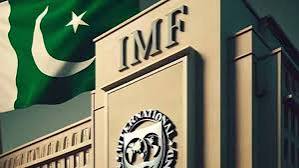By Ajibola Olarinoye
The International Monetary Fund (IMF) has reported that the banking sectors and their profitability are largely shielded from the impacts of inflation and rising interest rates in both advanced and emerging markets.
In a report published over the weekend, titled “Rising Rates May Trigger Financial Instability, Complicating Fight Against Inflation,” the IMF noted that vulnerabilities within certain banks could create a conflict between efforts to control inflation and the need to maintain financial stability.
The IMF’s analysis of the connection between inflation and bank profitability indicated that most banks are relatively insulated from inflation fluctuations, as their income and expenses tend to balance each other out.
However, the report also highlighted that some banks face significant inflation risks, which could result in financial instability if concentrated losses trigger broader panic within the banking sector.
“As several major central banks reevaluate their monetary policy frameworks in response to the inflation surge following the pandemic, gaining a deeper understanding of the relationship between inflation and bank profitability can aid in the development of more effective monetary policies. Our research suggests that central banks should take financial stability into account when determining their policy approach to address inflation,” stated the IMF.
“Does inflation impact bank profitability? This question has surprisingly received limited exploration. We address it by analyzing balance sheet and income data from over 6,600 banks across advanced and emerging economies, utilizing nearly three decades of IMF economic data,” the organization noted.
The IMF indicated that most banks seem to be well-hedged against inflation, as both their income and expenses tend to rise in tandem with inflation at comparable rates.
It also mentioned that income and expenses related to borrowing and lending are indirectly affected by inflation, primarily responding to fluctuations in policy rates.
The report indicated that the effects of inflation on bank revenues and expenditures can differ significantly across various banking systems at the national level.
“Inflationary changes are reflected in income and expenses much more swiftly in certain countries compared to others. However, since both income and expenses tend to increase at similar rates due to inflation in most nations, many banking systems seem to be relatively insulated from its effects,” it noted.
The IMF highlighted that some banks are particularly vulnerable to inflation because of their distinct risk management practices and business models. Outliers in both advanced and emerging markets may face substantial losses when inflation and interest rates surge.
“Notably, 3 percent of banks in advanced economies and 6 percent of banks in emerging economies are as exposed to high interest rates as Silicon Valley Bank was at the time of its collapse.”












